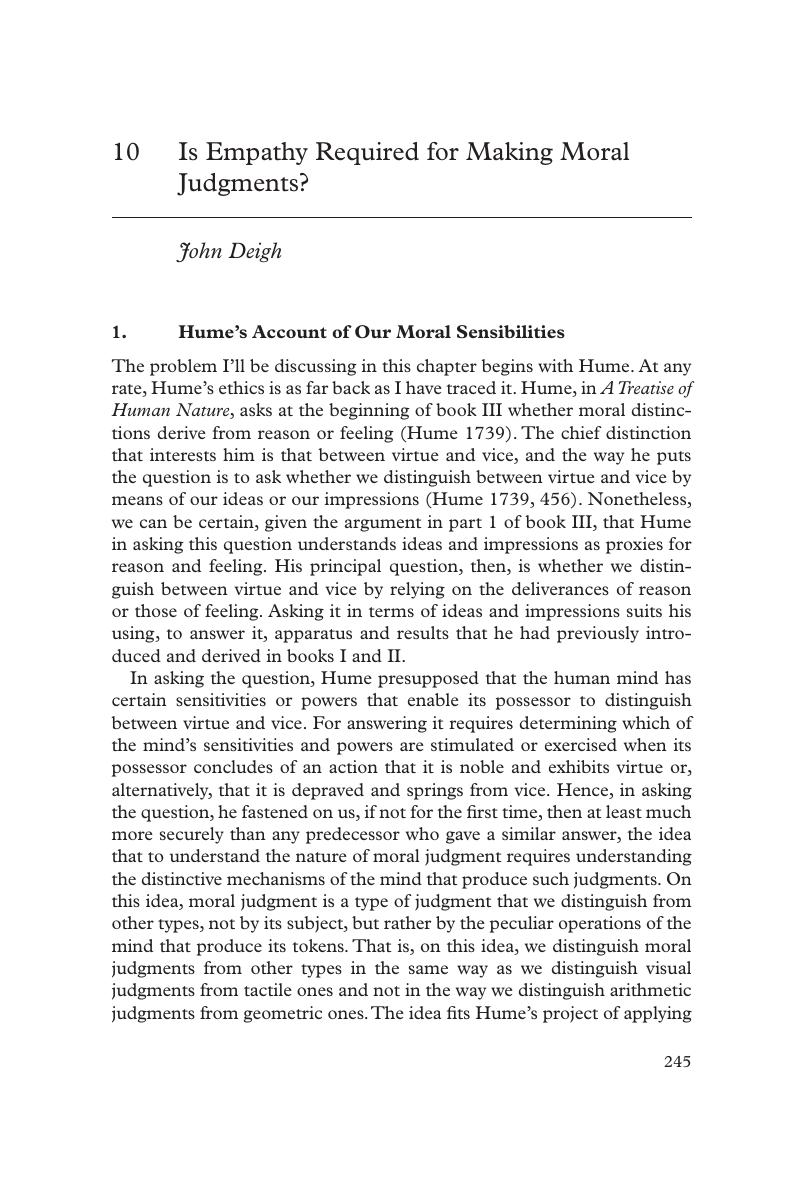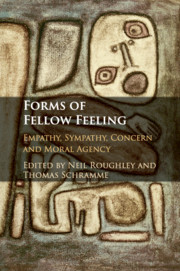Book contents
- Forms of Fellow Feeling
- Forms of Fellow Feeling
- Copyright page
- Contents
- Notes on Contributors
- I Introduction
- II Empathy, Sympathy and Concern
- III Understanding Empathy
- IV Fellow Feeling and the Development of Prosociality
- V Empathy and Morality
- 10 Is Empathy Required for Making Moral Judgments?
- 11 The Empathy in Moral Obligation
- 12 Empathy and Reciprocating Attitudes
- 13 The Role of Empathy in an Agential Account of Morality: Lessons from Autism and Psychopathy
- Author Index
- Subject Index
- References
10 - Is Empathy Required for Making Moral Judgments?
from V - Empathy and Morality
Published online by Cambridge University Press: 28 December 2017
- Forms of Fellow Feeling
- Forms of Fellow Feeling
- Copyright page
- Contents
- Notes on Contributors
- I Introduction
- II Empathy, Sympathy and Concern
- III Understanding Empathy
- IV Fellow Feeling and the Development of Prosociality
- V Empathy and Morality
- 10 Is Empathy Required for Making Moral Judgments?
- 11 The Empathy in Moral Obligation
- 12 Empathy and Reciprocating Attitudes
- 13 The Role of Empathy in an Agential Account of Morality: Lessons from Autism and Psychopathy
- Author Index
- Subject Index
- References
Summary

- Type
- Chapter
- Information
- Forms of Fellow FeelingEmpathy, Sympathy, Concern and Moral Agency, pp. 245 - 264Publisher: Cambridge University PressPrint publication year: 2018
References
- 1
- Cited by



